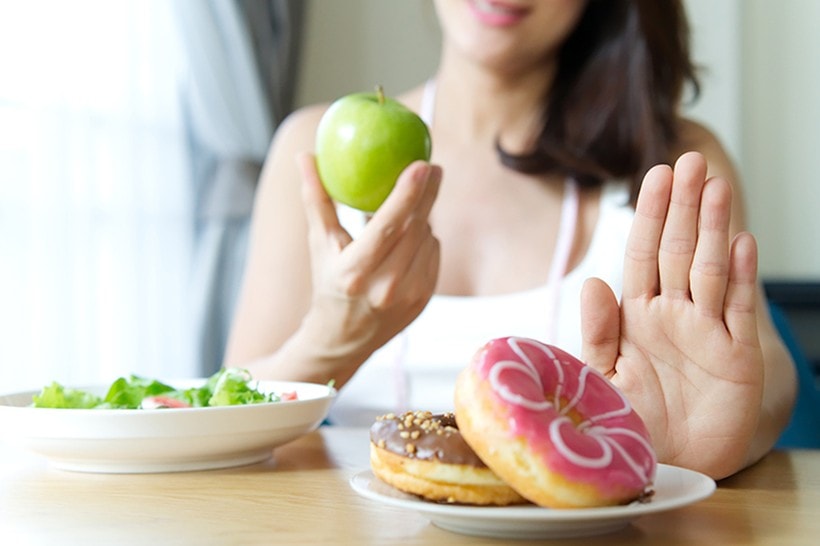How does your body change when you stop eating sugar completely?
Some people claim that cutting out sugar can dramatically improve your health. But what really happens when you stop eating sugar completely?
While you may be eliminating “empty calories,” which helps with weight control and allows you to eat more nutrient-dense foods, your body is losing out on a major source of energy, depending on the foods you cut out.
The natural sugars in carbs help you get through your daily activities and think clearly. Without that energy, you may feel irritable, anxious, and have headaches.
According to experts, eating sugar in moderation and as part of a balanced diet is a healthier choice than avoiding it completely.
What counts as sugar?

The Dietary Guidelines for Americans (DGA) recommends that you get no more than 10% of your daily calories from added sugars. Added sugars are sugars that manufacturers add to foods or beverages when they are processed.
Different forms of sugar include:
- Galactose.
- Glucose.
- Fructose.
- Lactose.
- Malt.
- Sucrose.
Natural and added sugars:
Keep in mind that the DGA's recommended limits do not apply to naturally occurring sugars, like those found in fruits, milk, vegetables, and whole grains. These foods contain antioxidants, minerals, and vitamins that are essential for your overall health.
Added sugars, on the other hand, are “empty calories” because they provide no nutrients. You’ll find added sugars in baked goods, candy, tomato sauce, salad dressings, and soft drinks.
Excessive added sugar intake increases the risk of several health conditions, including heart disease and type 2 diabetes.
Carbohydrates and sugars:
It is almost impossible to completely cut sugar out of our diet because carbs are sugars. Your body digests and breaks down carbohydrates into glucose (sugar) to use or store in cells for energy.
The United States Department of Agriculture (USDA) Dietary Guidelines for Americans recommends that you get 45% to 65% of your daily calories from carbohydrates.
Most sugar detoxes focus on added sugars rather than all carbs, which affect the body in similar ways. You don’t actually cut out sugar when you do a sugar detox. You’re still getting sugar, just in a different form.
Keep in mind that it’s not reasonable to completely cut out carbs and get all your calories from protein and fat. You’d have to cut out nutrient-dense foods like fruits, dairy, vegetables, and grains. Even then, your body uses gluconeogenesis, a metabolic pathway that creates glucose from non-carb sources.
How to determine sugar content
The American Heart Association (AHA) recommends that women eat no more than 25 grams of added sugar per day and men eat no more than 36 grams.
Check the label to see how much added sugar is in your food and drinks. The label will usually list the total amount of sugar, including naturally occurring sugars, in the product. Manufacturers will list the amount of added sugar below.
Specific effects of a diet low in added sugars:

Helpweight control
Eating too much sugar can cause weight gain. Added sugars are high in calories but add no nutrients to your diet, increasing your risk of obesity. Cutting down or limiting added sugars will reduce your calorie intake, which is necessary for weight loss.
Reduce the risk of heart disease
Research has found that sugary drinks can lower HDL (good) cholesterol and increase triglycerides and total fat. Low HDL cholesterol and high triglycerides are significant risk factors for heart disease, the leading cause of death in the United States.
Try replacing sugary drinks with plain water. You can add fruit pieces or cucumber slices to your water for extra flavor. Choose unsweetened beverages like 100% fruit juice or skim milk.
Managing and preventing diabetes
There's no need to avoid sugar completely if you have prediabetes or diabetes. Instead, the American Diabetes Association (ADA) recommends limiting added sugars to help control your blood sugar.
High blood sugar increases the risk of eye, kidney, and nerve damage if left uncontrolled.
Teat more nutritious foods
You can make more nutritious choices if you cut out added sugars. For example, swapping a chocolate bar for some berries will give you antioxidants, filling fiber, minerals, and vitamins.
Choose a balance of fruits, dairy, lean proteins, vegetables and whole grains to consume the nutrients your body needs to repair itself and protect you from illness and infection.
Reduce the risk of tooth decay
Added sugar feeds bacteria in your mouth that cause cavities or damage the protective coating (enamel) on your teeth.
Tooth decay increases your risk of gum disease. Make sure you brush and floss regularly, and limit sugary foods and drinks.
Possible risks of avoiding sugar:
It’s not helpful to view sugar as the enemy. Labeling it as “off-limits” and restricting it too much can make you crave it more than usual. You’ll eventually run the risk of reaching for those off-limits, and even feeling out of control because you’ve been avoiding it for so long.
Some of the most common symptoms of low blood sugar include:
- Difficulty thinking clearly.
- Tired.
- Feeling irritable and anxious.
- Headache.
- Always hungry.
- Heart palpitations.
- Sweating.
- Tingling and numbness.
- Trouble sleeping
- Visual impairment.



